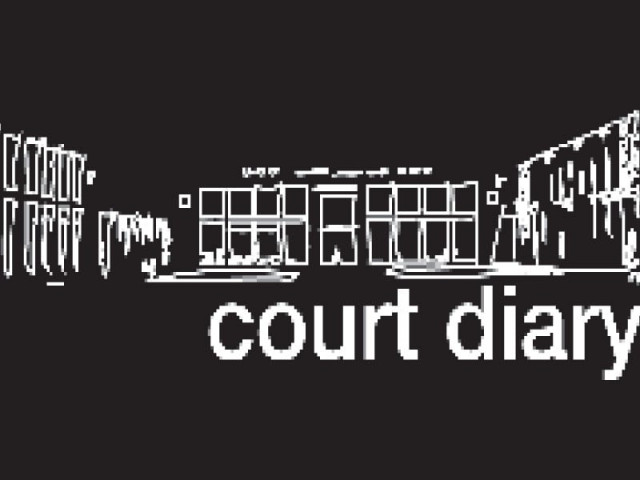Court Diaries: High court draws line over autopsies of deceased detainees
Concern over extrajudicial killings rises with more and more bodies being handed to bereaved families.

So far five reports have surfaced from the Khyber-Pakhtunkhwa (K-P) Home and Tribal Affairs department, identifying around 1,000 previously missing persons held in different internment centres. Also, some reports indicated their status, with many internees classified as black, which means they are proven militants.
Since taking oath as the Chief Justice (CJ) of Peshawar High Court, Justice Mazhar Alam Miankhel has been hearing the cases individually, unlike the previous chief justices who heard them collectively.
Continuous directives of the court have forced the government to reveal whereabouts of previously missing persons, but the PHC has serious concerns about custodial deaths.
Murky waters
In recent weeks, majority of the families attending the hearings said they were handed over bodies of their loves ones, particularly from Kohat internment centre. This prompted the court to issue stern directives.
On October 14, four families complained in the court room that they were handed bodies of their loved ones from Kohat internment centre without being given any reasons for their death. As a result, the CJ summoned K-P home secretary, chief secretary and FATA additional chief secretary within three hours.
After hearing arguments from Home Secretary Syed Akhtar Ali and the then FATA additional chief secretary Arbab Muhammad Arif, the court deemed handing over of bodies without autopsies as unacceptable.
On October 28, the court had issued a show-cause notice to Kohat internment centre in charge Syed Asif Ali Shah for handing over the body of a detainee to his family without conducting a post-mortem.
During the proceedings, Muhammad Noor, father of deceased Walayat Shah, informed the court that his son was picked up in 2012 and remained missing for a long time. The family was later told that Shah had been detained at the Kohat internment centre.
Noor said that the family met Shah at the centre but his corpse was handed over to them soon after. The court was also told that Shah was carrying valuable luggage in a car which was impounded when he was nabbed.
On October 29, the high court rejected the reports on four deceased missing persons, Minar Khan, Jan Muhammad, Liaquat Amin and Noor Gul, whose bodies were handed over to the families from Kohat internment centre. The reports contained the date of internment, facilities provided, date of death, date of handover, but no autopsy report.
Kohat central jail superintendent Samiullah and internment center in charge Syed Asif Ali Shah had produced the reports, which the court declared inadequate and ordered the officials to file autopsy reports too.
“The autopsy will at least establish the cause of death and the families will know whether their loved ones died of natural causes or were terminated,” a lawyer dealing with cases of missing persons told The Express Tribune.
Previously, the court has also expressed reservations over the absence of oversight board reports of detainees. However, additional Advocate General Waqar Ahmad Khan had assured the court that all concerned commissioners have been directed to submit reports of all internees, whose cases are sub judice, directly to the PHC.
Legality
Section 174 (3) of the Criminal Procedure Code states that when the cause of death is dubious or when for any reason the police officer considers it expedient to do so, he shall, subject to rules that the provincial government may prescribe, forward the body for examination to the nearest civil surgeon or any other qualified medical practitioner appointed by the provincial government; if the weather, distance and putrefaction allow the transportation of the corpse.
Section 14 of Internment Rules 2011 says that an official present at the centre shall immediately report the occurrence of any sudden or violent death or death from suicide to the medical officer and officer in charge. The body shall be left untouched till the arrival of the magistrate or the medical officer.
Published in The Express Tribune, November 16th, 2014.













COMMENTS
Comments are moderated and generally will be posted if they are on-topic and not abusive.
For more information, please see our Comments FAQ